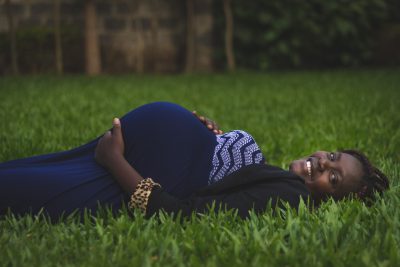 The Centers for Disease Control updated their list of who is at increased risk of being severely affected by COVID-19 to include pregnant women with coronavirus on June 25, 2020. The inclusion was in part based on the Morbidity and Mortality Weekly Report (MMWR) article that has collected data about the effects of COVID-19 on pregnant women.
The Centers for Disease Control updated their list of who is at increased risk of being severely affected by COVID-19 to include pregnant women with coronavirus on June 25, 2020. The inclusion was in part based on the Morbidity and Mortality Weekly Report (MMWR) article that has collected data about the effects of COVID-19 on pregnant women.
Are Pregnant Women More Likely to Get Coronavirus?
Pregnant women are not more likely to contract COVID-19. There is nothing involved in a normal pregnancy that would increase the risk of contracting COVID-19. In addition, pregnant women with coronavirus are not at an increased risk for death from COVID-19. What is concerning is that pregnant women with coronavirsu are at an increased risk of having more severe symptoms after contracting COVID-19.
Why Might Pregnant Women Experience More Severe Effects from COVID-19?
When we think of populations at-risk for COVID-19, we usually think more along the lines of those with pre-existing conditions like diseases, or those affected by homelessness or substance abuse. We don’t tend to think of pregnant women as at-risk because they are not, by definition of being pregnant, unhealthy.
Pregnant women with coronavirus may be more at-risk because of the massive changes their bodies experience as part of pregnancy. Pregnancy puts a large amount of stress on a woman’s body that may make them more susceptible to experiencing severe symptoms.
Note that SARS-CoV-2 is the virus thought responsible for COVID-19. The MMWR report entitled “Characteristics of Women of Reproductive Age with Laboratory-Confirmed SARS-CoV-2 Infection by Pregnancy Status – United States, January 22-June 7, 2020” cites the “immunologic and physiologic changes” of pregnancy as increasing the risk of pregnant women to respiratory infections and more severe symptoms.
What Data is Available About How COVID-19 Is Affecting Pregnant Women?
According to the CDC:
- 326,335 cases of women of reproductive age (15-44) testing positive for COVID-19 from January 22 – June 7, 2020.
- 8,207 cases of COVID-19 in pregnant women as of June 7, 2020.
- 9% of women of reproductive age (15-44) that contracted COVID-19 were pregnant.
- 31.5% of pregnant women testing positive for COVID-19 were hospitalized, versus 5.8% of nonpregnant women.
It should be noted that pregnant women surveyed had much higher incidence of underlying chronic conditions, which may affect the severity of their experience with COVID-19.
- 22.9% of pregnant women reported underlying chronic conditions, versus 35.0% of nonpregnant women.
- 21.8% of pregnant women reported chronic lung diseases as an underlying chronic condition, versus 10.3% of nonpregnant women.
- 15.3% of pregnant women reported diabetes as an underlying chronic condition, versus 6.4% of nonpregnant women.
- 14.0% of pregnant women reported cardiovascular disease as an underlying chronic condition, versus 7.1% of nonpregnant women.
What Preventative Measures Can Pregnant Women Take Against COVID-19?
The MMWR Report suggests that in addition to the COVID-19 preventative measures suggested by the CDC for the general public, pregnant women may want to additionally:
- Maintain good health care, especially for underlying chronic conditions.
- Maintain good prenatal care, including regular doctor appointments.
- Keeping a 30-day supply of medicines, both prescription and OTC.
How Does COVID-19 Affect an Unborn Fetus?
The answer to this question is not yet known, because not enough data has been collected. It cannot be assumed that there will be negative effects in terms of increased risk of miscarriage, effects on the fetus in-utero, premature birth and/or long term effects on children who’s mothers contracted COVID-19 while pregnant.
There have been cases and data that suggest that COVID-19 can have long term effects on those that recover, possibly in the form of heart diseases – specifically cardiomyopathy and catastrophic arrhythmias. It should be noted that these lasting effects seem to be associated with severe cases where patients became critically ill.
The National Heart, Lung, and Blood Institute (NHLBI) launched a study named the COVID-19 Observational Study (CORAL) to research the long-term effects of COVID-19. Depending on the conclusions, data collected from this and similar studies might influence whether women choose to become pregnant while the pandemic is still unchecked in the United States.


